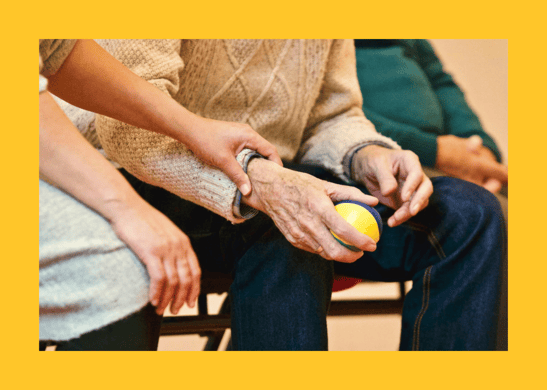Montessori has been shaping the lives of children for over a century, but have you ever thought of its impact on adults? The Montessori philosophy’s core principles have been increasingly seen as essential in enhancing the lives of older adults, specifically. At the heart of both the Montessori philosophy and person-centered care are respect for the individual, the importance of knowing the individual deeply, and fostering a supportive environment. As January is Alzheimer’s Awareness Month in Canada, we thought it fitting to sit down with the wonderful Erika Lacey to better understand dementia and the amazing ways Montessori supports those with impaired memory diseases such as Alzheimer’s.
After over 25 years of experience as a teacher and leader in the Montessori community, Erika has taken her passion for Montessori education in a unique direction. Her new focus is on sharing the Montessori method of educating with older adults, specifically those with dementia. She is pursuing a career as a Certified Practitioner of Montessori for Aging and Dementia, through AMI (the American Montessori Institute). When asked what led her to embark on this new journey Erika said, “Montessori’s tenets of peace, respect, independence and living a purposeful life really appeal to me. Older adults and people living with dementia want and deserve the same. Through my studies, I am learning that the Montessori method, that I have believed in for the last 25 years, can quite naturally be used in aged care to help revive and strengthen past abilities, and improve quality of life.”

Dementia is a term used to encompass several diseases that affect the memory and one’s cognitive abilities such as Alzheimer’s disease. “Dementia is a worldwide epidemic. The World Health Organization (2015) estimates 66 million people, globally, will be living with dementia by 2030 and this number is expected to double every 20 years," says Erika. She continued by saying, “there is no cure for dementia, so we need to find better ways to ease the challenges faced and create environments where people of a range of cognitive abilities can live their best lives.” Inspired, I asked how Montessori plays a role in easing these challenges. Erika replied: “Through observation and assessments, Certified Montessori Practitioners design and implement an individual Engagement Plan for each adult. Engagement Plans include a variety of activities and roles that address our natural human tendencies in a prepared and supportive environment.” Erika has been working on collecting, refurbishing and creating Montessori materials to enrich these engagement plans and the environments she works in with the help of The Clover School.
In these carefully curated spaces and in following these thoughtfully laid out Engagement Plans, Montessori supports older adults by reducing anxiety and boredom, and increasing independence and active participation. This leads to feelings of empowerment, greater self-esteem and belonging. These benefits are similar to those we see in children following the Montessori method. This engaging program and sense of independence also contribute to the satisfaction of the caring staff, fostering increased collaboration amongst the team and ultimately enhancing the lives of those under their care.

There is so much that has yet to be realized in the world of Montessori and Dementia. “My hope is that more homes for the aged will fully adopt the Montessori approach,” says Erika. “My dream is to build homes that incorporate both the education of young people and care of the older people under one roof as part of a shared community with Montessori at the heart.” I left my conversation with Erika with a better understanding of how special the Montessori method is. How amazing is it that we can spark a joy for learning and empower our older adults just as we do our children? The future is very bright.


